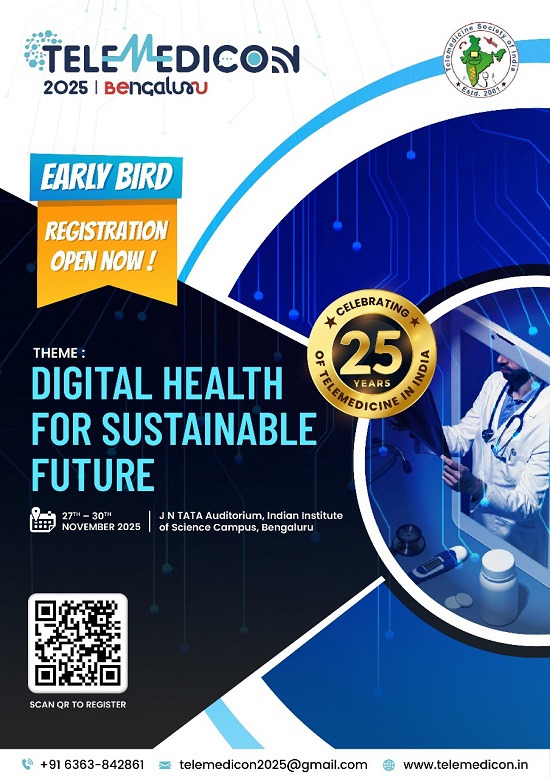Telehealth Newsletter
Official Newsletter of Telemedicine Society of India

What is New?
The Executive Committee (EC) members recently visited the Indian Institute of Science to inspect the venue for the upcoming TELEMEDICON. We are pleased to share that it is an outstanding academic setting-an ideal location for hosting our annual conference. Our program committee is working diligently to curate a rich and engaging academic experience for all attendees. We encourage you to start registering in large numbers to make this conference a truly memorable one.
The state chapters continue to play a pivotal role in advancing digital health across India. This issue features updates from six state chapter ECs, with more to be included in our next edition. Also, don’t miss the thought-provoking AI-related articles and the specially designed crossword puzzle by our Secretary, Dr. Umashankar.
Thank You
Dr. Sunil Shroff
Chief Editor
President-Elect, TSI

Report of the Mid-Term Executive Committee Meeting of Telemedicine Society of India (TSI), Headquarters
Prof. (Dr) Umashankar S.
Managing Director Med.Bot | Honorary Secretary, Telemedicine Society of India
Date: 12th July 2025
Venue: Board Room, IISc Medical School Foundation, 5th Floor, IDA Building, Bengaluru.
Mode: Hybrid (Physical + Zoom)
Time: 10:00 AM onwards
Reported by: Dr. Umashankar S, Honorary Secretary, TSI
The Mid-Term Executive Committee Meeting of the Telemedicine Society of India (TSI) was held on 12th July 2025 at 10:00 AM in a hybrid mode. The physical meeting was convened at the IISc Medical School Foundation, Bengaluru, and members unable to attend in person joined via Zoom.
The meeting commenced with a warm welcome by the Honorary Secretary, Dr. Umashankar S, followed by a Presidential message that highlighted the Society’s ongoing commitment to advancing telemedicine across the country.
Key updates were shared by the Honorary Secretary and Treasurer, and important decisions were taken regarding society activities, conferences, and health initiatives. The meeting reflected active participation and a shared vision for advancing telemedicine in India.
The meeting concluded with a vote of thanks by the Honorary Secretary, appreciating the participation and ongoing contributions of all EC members, and reiterating the Society’s focus on innovation, inclusion, and impactful healthcare delivery through telemedicine.
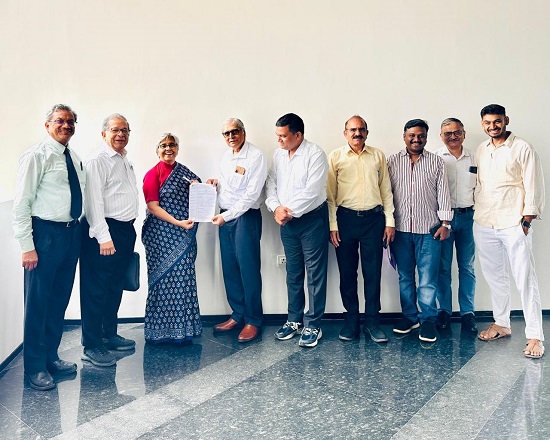

Telemedicine Society of India (TSI) – New Executive Committee Details of various chapters
Prof. (Dr) Umashankar S.
Managing Director Med.Bot | Honorary Secretary, Telemedicine Society of India
Telemedicine Society of India (TSI) – New Executive Committee of Maharashtra Chapter
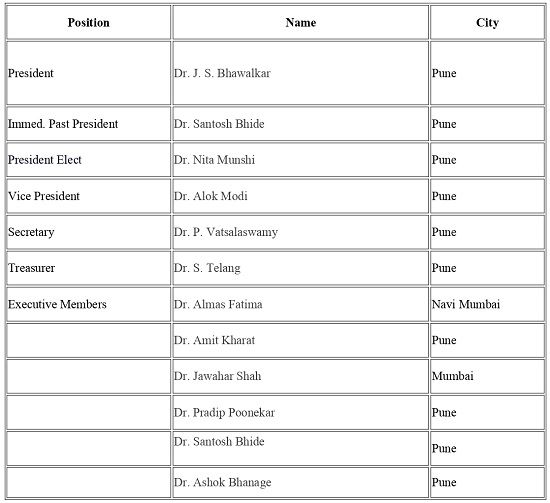
Telemedicine Society of India (TSI) – New Executive Committee of Karnataka Chapter
Effective from April 2025
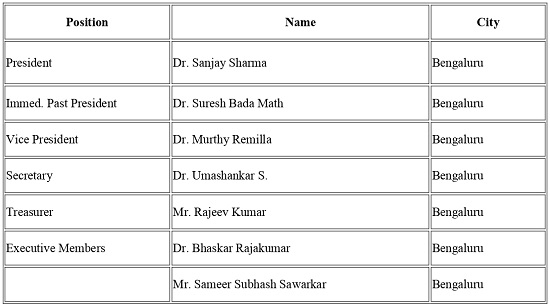
Effective from 11th August 2024
Newly elected President Dr. Dhananjay K. Mangal addressed to the new committee members of Rajasthan State Chapter. He spoke about his plan of action for the coming year. He also thanked all speakers. He was focused to increase the effort in enhancing the knowledge of medical professionals about digital health application and its consequent benefits to the society.
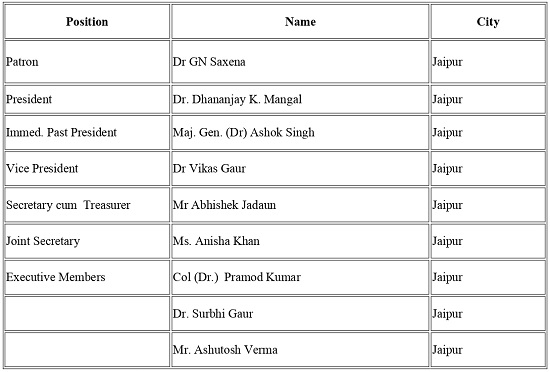
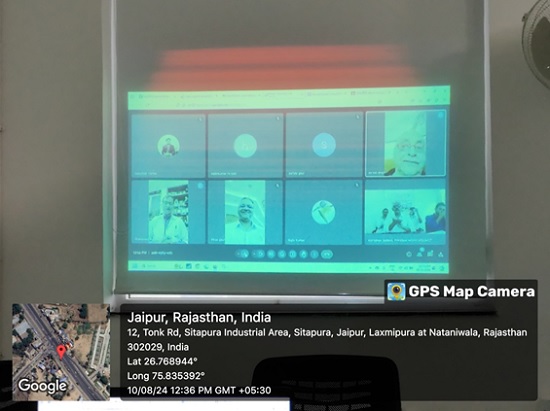
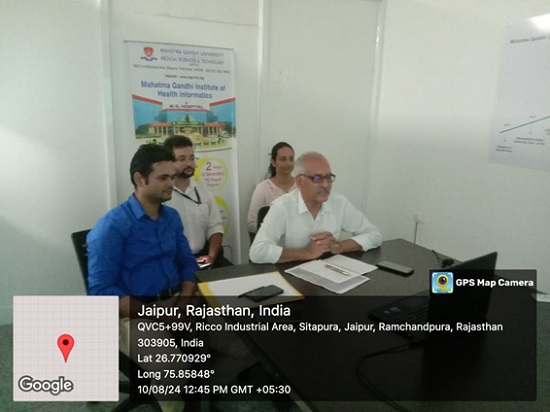
Telemedicine Society of India (TSI) – New Executive Committee of Telangana Chapter
Effective from 02nd July 2025
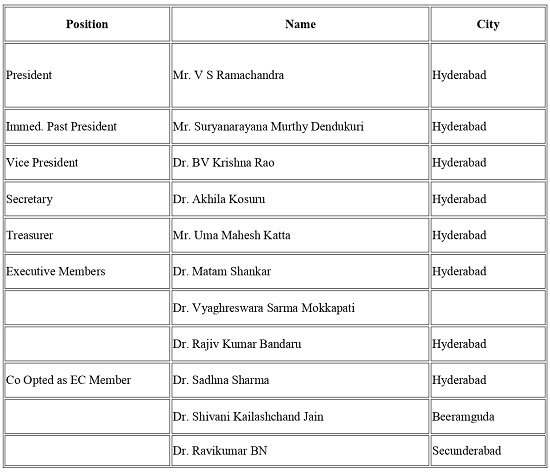
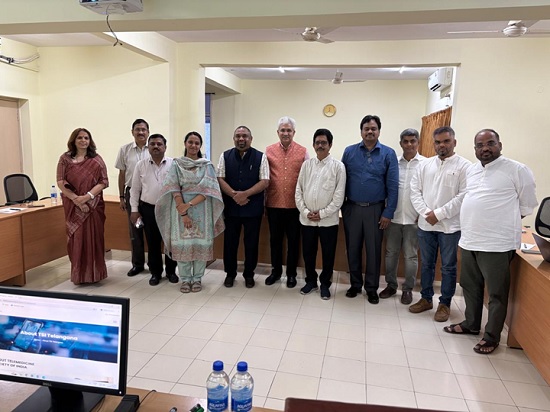
Telemedicine Society of India (TSI) – New Executive Committee of Kerala Chapter
New Leadership Takes Charge of Telemedicine Society of India, Kerala Chapter
Effective from 27th June 2025 | Venue:Amrita Hospital, Kochi
The Telemedicine Society of India (TSI) – Kerala Chapter marked a significant leadership transition with Dr. Vivek Nambiar taking over as the New President. He succeeds Dr. Prem Nair, who continues to serve as the national President of TSI.
The newly elected Executive Committee, led by Dr. Vivek Nambiar, was introduced by Dr. Nitha Panickar, the new Secretary. Ms. Reshmi Aysha- Vice President of the Chapter,Mr. Kevin Devasia -Treasurer and committee members include Dr. C. Sreekumar,Dr. Pradeep Thomas, and Mr. Binu Mahid.
The event started with welcome address by Mr.Bijoy Secretary TSI -Kerala inaugural Address by Dr.Prem Nair -President TSI highlighted by the Keynote Address delivered by Chief Guest Dr. Sreevilasan K.A., President of the Indian Medical Association (IMA) – Kerala State, who spoke on the future of telemedicine and its integration into mainstream healthcare.Reort of TSI -Kerala presented by Mr.Bijoy Secretary TSI-Kerala
Dr. Raghavan, Retired Professor of NIT Trichy and a founding executive committee member of TSI, was honored by Dr. Prem Nair, President of TSI, with a shawl in appreciation of his lasting contributions to telemedicine in India.
Dr. Beena K.V. elaborated on several telemedicine initiatives carried out in collaboration with TSI and IMA, emphasizing the need for unified digital health strategies in Kerala.
Dr. L.S. Satyamurthy, TSI Founder Member and Former Director of ISRO, delivered a powerful felicitation address, reflecting on the early days of satellite-driven healthcare connectivity.
The event was further graced by dignitaries including Dr.Sudersan (Vice President, IMA), Dr. Satish Prabhu (State Coordinator, IMA), Dr. Dinesh (Administrator, Amrita Hospital), Adv. Anand (Managing Trustee, Adi Sankara Institutions), and Mr. Achuth (Executive Officer, TSI Kerala Chapter).Anchored by Ms. Merin.
The event concluded with a heartfelt vote of thanks by Ms. Reshmi Aysha, Vice President of TSI Kerala Chapter.

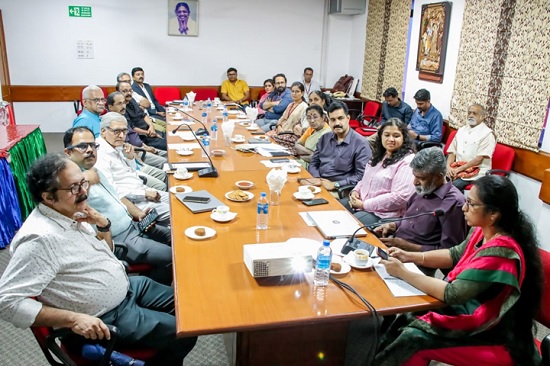
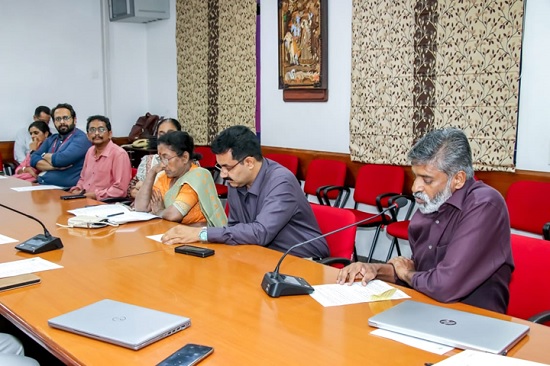
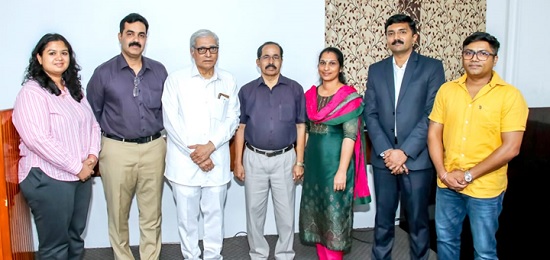
Telemedicine Society of India (TSI) – New Executive Committee of Uttarakhand Chapter
Effective from 01st August 2025
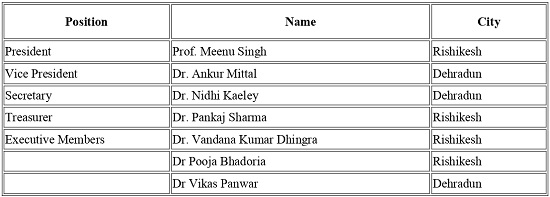
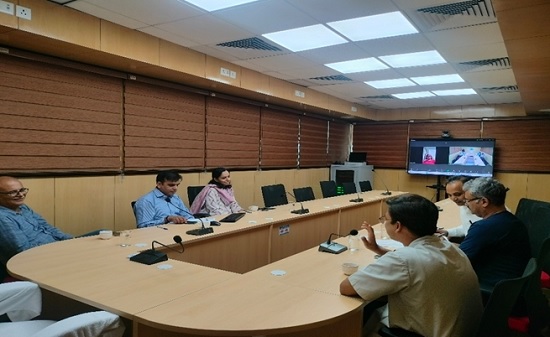
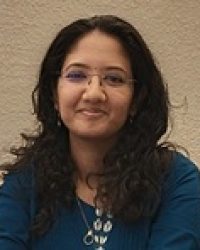
Can AI-Powered Meal Plans Help Cancer Patients Eat Better?
Dr. Vasantha, BDS
Content Writer, Medindia.net
AI tools like ChatGPT and Gemini may soon help bridge nutrition gaps in cancer care by offering culturally sensitive, budget-friendly, personalized meal plans.
Eating right can make a big difference in how cancer patients feel and heal. But for many, getting expert nutrition advice is difficult or expensive. A new study published in the journal Nutrients by researchers from Thomas Jefferson University suggests that artificial intelligence (AI) tools like ChatGPT and Gemini could help fill this gap by offering affordable, customized meal plans based on individual patient needs.
The study found that large language models (LLMs) like ChatGPT and Gemini were able to generate grocery lists and meal plans tailored to various needs including budget, culture, and location. While professional dietitians offered better calorie accuracy, the AI models outperformed in matching macronutrient targets. Gemini, in particular, provided more comprehensive responses that even included prices and ethnic meal options. Overall, the meal plans from AI tools were found to be “not significantly different” from those created by certified oncology dietitians.
Personalized Advice Is Rare
Nutrition plays a vital role in cancer care, influencing treatment outcomes, energy levels, and even survival. However, most cancer patients never get the chance to speak to a trained dietitian. Personalized nutritional counseling is often not covered by insurance, especially in outpatient care. Even when available, access is limited by long wait times, geographic barriers, and high costs.
Not Just a Luxury
Eating well is not just a matter of comfort for cancer patients. Weight gain during treatment, often caused by steroids or hormonal therapy, has been linked to poorer outcomes. Meanwhile, financial hardship, poor access, and cultural gaps in care make it harder for many patients to follow a healthy diet. The result is a huge, unaddressed need for better, more inclusive nutritional support.
How the Study Was Designed
Researchers created 31 prompt templates to test how well ChatGPT and Gemini could generate dietary recommendations for breast cancer patients. They introduced variations in age, budget, comorbidities, cultural food preferences, and even nearby grocery store availability. Dietitians were also asked to respond to a sample of prompts to compare outcomes.
What the AI Got Right
Both AI models produced full meal plans and grocery lists. Gemini stood out for its added visuals, cultural specificity, and cost estimates. It was also better at using sensitive language for budget-conscious users. ChatGPT focused more on meal preparation tips. Both models adapted well to different budget levels, providing flexibility many patients would find helpful.
Interestingly, while AI fell short in adjusting for things like cancer stage or comorbid conditions, it hit the mark on nutrient balance. Researchers noted that LLMs had access to massive databases that allowed them to match official macronutrient ranges with surprising accuracy. In some areas, their responses rivaled or even exceeded those of professional dietitians.
A Tool to Support, Not Replace, Human Care
AI Still Needs Oversight
While the results are promising, experts caution that AI is not ready to replace human professionals. The tools are less accurate in managing specific medical conditions and may overlook crucial dietary guidelines related to treatment plans. However, they can serve as a starting point, especially for underserved populations who lack access to care.
Bridging the Equity Gap
The study highlights the potential of AI to close longstanding equity gaps in cancer care. Culturally appropriate and cost-sensitive meal plans can help people from diverse backgrounds stick to healthy diets. For patients in remote regions or on tight budgets, being able to generate a grocery list that fits their local store and wallet could be life-changing.
While technology is not directly providing a cure for cancer, it can be a valuable ally in the journey to recovery. This study opens up new possibilities for how AI can support nutrition in cancer care, especially for those who face barriers to seeing a dietitian. The goal is not to replace expert care but to expand its reach, making sure no patient is left behind because of cost, culture, or geography.
If you’re a cancer patient or caregiver, know that help with nutrition doesn’t have to be out of reach. Let’s turn technology to nourish every patient with dignity and hope.

AI offers hope for smarter, more targeted therapies in breast cancer by uncovering the hidden diversity of cancer cells.
What if we told you that not all cancer cells in a tumour are the same-and that’s exactly why some treatments fail? A groundbreaking AI tool called AAnet(Archetypal Analysis network ) is changing how we understand cancer at the single-cell level. This tool finds hidden cell types within tumours that behave in completely different ways. By identifying these “secret players”, doctors may soon treat every part of a tumour-not just the majority. This means better targeting, fewer relapses, and hope for longer, healthier lives
Tumours: A Hidden City of Cell Types
Think of a tumour like a busy city. It’s not just one kind of person living there-there are different communities of cells, each with their own role. Some cells grow fast, others resist treatment, and a few may even help the cancer spread. This cellular diversity, known as heterogeneity, is what makes cancer so tricky to treat. Understanding this is the first step to outsmarting the disease.
AAnet: The AI Detective Inside the Tumour
Traditional tools couldn’t spot the subtle differences between cancer cells-but AAnet can. This powerful AI algorithm scans gene activity inside single cells and discovers patterns too complex for the human eye. It groups similar cells into clear “archetypes”, showing us how different parts of a tumour behave. It’s like going from a blurry image to crystal-clear insight.
Meet the 5 Cell Archetypes – Cancer’s Hidden Faces
There are five unique groups of cells in breast tumours. Each group-or “archetype”-has its own traits: one may grow quickly, another might survive low oxygen, and one could even help cancer spread. These aren’t just technical details-they’re clues to more effective treatment, guiding doctors to target every type of bad actor.
A New Chapter for Breast Cancer Treatment
Most treatments today focus on where the cancer began-like the breast-but not on what’s happening inside the tumour. AAnet changes that. It helps doctors look deeper than ever before, making room for personalized combination therapies that attack each cell group based on its biology. This approach could reduce relapses and improve overall success rates.
From Lab to Life: What’s Next for AAnet
The next goal is to see how these cell groups change over time, especially before and after chemotherapy. This will help researchers understand which cells survive treatment-and why. The long-term dream? To use AAnet in hospitals, combining it with traditional tests so that every cancer patient gets the most personalized care possible.
Beyond Cancer: A Tool for the Future
While this study focused on breast cancer. From other cancers to autoimmune diseases, this AI tool could help decode complex cell behavior in many illnesses. It’s a leap forward where technology meets biology, opening new paths for science, medicine, and patient hope.
::ANNOUNCEMENTS::
::CROSSWORD::
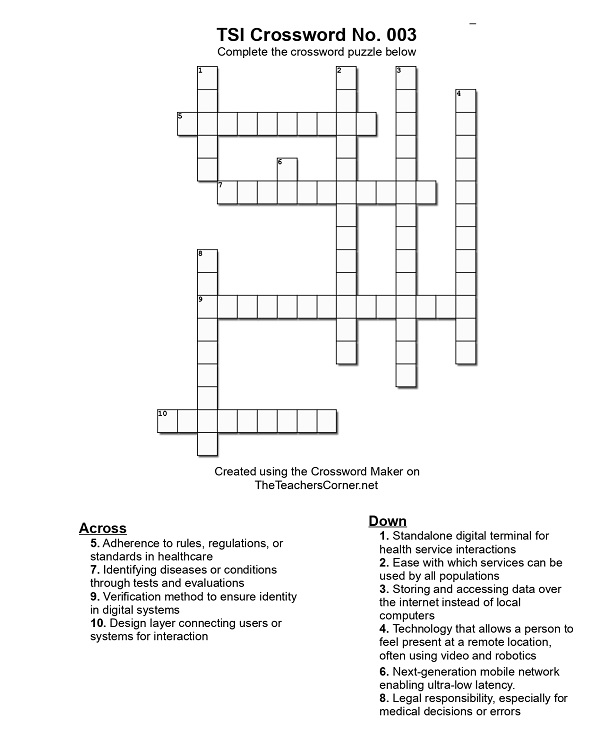
Click here to Print the Crossword
Click here to view the Crossword Rules and Regulations
Compiled by Dr.Umashankar
Answers in August 2025 Newsletter!
Telemedicine – News from India & Abroad
Advancing Eye Health: AI Measure for Short-Sightedness
According to a recent study, combining routine eye scans with AI has led to a groundbreaking method for assessing short-sightedness……….. Read More
New AI Tool Predicts Cancer Aggressiveness With Protein Data
A machine learning tool developed by researchers in Brazil and Poland can assess tumor aggressiveness by detecting specific proteins………….. Read More
Ark+: How Open-Source AI Transforms Medical Imaging
Could artificial intelligence revolutionize health care? A team of researchers at Arizona State University believes so………… Read More
The AI Translator for Hospitals: Turning EHR Chaos into Clarity
Transforming hospital records into readable text lets AI models deliver advanced, accurate clinical insights……. Read More
Telemedicine Practice Guidelines – A Foundation Course for RMPs by TSI Faculty
To know more about the Telemedicine Foundation Course click on the link below:
https://tsitn.org/tpg-course/
Medical Writing Certificate Course with Internship Opportunity!
TSI invites all the TSI Chapters and Members to submit information on their upcoming Webinar or Events (50 words), News related to Telemedicine (200 words) or short articles (500 words) for the monthly e-newsletter.Guidelines for submission to TSI Newsletter-
- Report can be from 500 to 600 words
- Report Should be relevant to Telemedicine or Medical Informatics
- No promotion of self or any product
- Avoid plagiarism
- All references should be included
- Provide any attributions
- Visuals are welcome including video links
- Send full authors name, degrees, affiliations along with a passport sized photograph of good resolution. If multiple authors only main author photo to be sent.
Submission may be sent to – tsigrouptn@gmail.com
Editors reserve the rights for accepting and publishing any submitted material.
Editor in Chief – Dr. Sunil Shroff
Editors – Dr. Senthil Tamilarasan & Dr. Sheila John
Technical Partner- https://www.medindia.net


